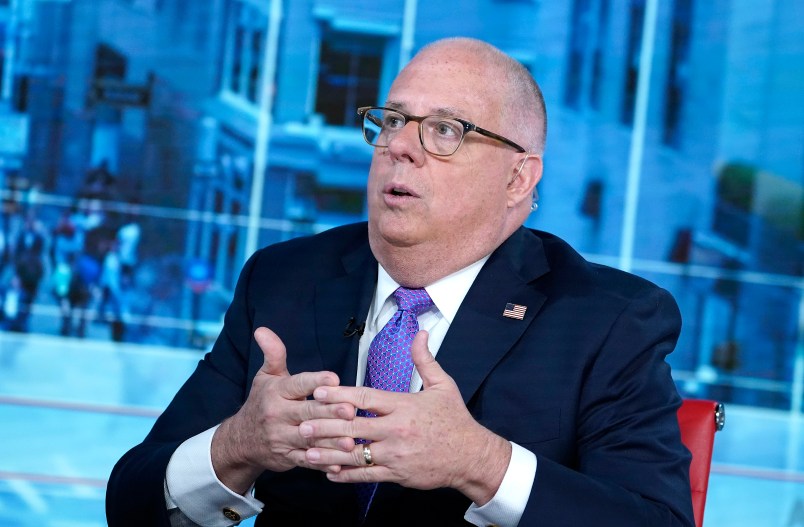A spokesperson for Maryland Governor Larry Hogan’s (R) office said it will soon decide, “in the next few days or so,” whether to make the state’s April 28th presidential primary mail-in ballot only as the coronavirus outbreak spreads.
State law allows the governor’s office the power to make the decision unilaterally, ever since Hogan declared Maryland to be in a state of emergency.
Press secretary Michael Ricci pointed to a portion of Maryland’s election law that grants the governor the power to make a proclamation postponing elections or specifying alternate voting systems during extraordinary circumstances.
Maryland had 18 confirmed cases of coronavirus as of Friday afternoon.
Other states are also considering extreme measures for holding elections amid the pandemic. On Friday, Louisiana delayed its April 4 primary by two months in the hope that the outbreak will die down in meantime. North Carolina, whose presidential primary has already passed, is considering amending the requirements for absentee voting for an upcoming May congressional primary.
There have also been efforts on the federal level. Sen. Ron Wyden (D-OR) has been pushing his bill that would allow all Americans to vote by mail, as well as apportion $500 million in federal funds to help states prepare for coronavirus-related election disruptions.
But there does not seem to be much Republican hunger for Wyden’s bill, despite the senator’s attempt to frame it as a bipartisan solution.
Hogan, though, is a different brand of Republican than his Senate colleagues. A wildly popular Republican governor in a blue state with a Democratic statehouse, he walks a more moderate line.
Donna Duncan, the state Board of Elections assistant deputy for election policy, declined to provide insight into ongoing conversations with the governor, but pointed out that state law currently permits “no excuse” absentee voting, as well as requesting a ballot online.
Regular absentee ballots require voters to account for their inability to vote in person; no-excuse absentee ballots let any registered voter request one. And requesting a ballot online, instead of having to physically pick it up, already cuts down on the human-to-human contact.
That infrastructure Maryland already has in place may be the key to smoothly transitioning to an all-mail primary. Louisiana considered going all-mail, but the secretary of state said it would be impossible to switch their system — which only has regular, excuse-required absentee ballot voting — before the April primary.
“Maybe they can pull it off,” John Fortier, director of the Bipartisan Policy Center’s Democracy Project, told TPM of Maryland. “It’s not necessarily a bad idea to go to all vote by mail. But it’s not so easy to ramp up the system. You can ramp up some, but to transform the whole system to vote by mail will cause some issues.”
One particular problem Fortier foresees is a drawn-out ballot tabulation process that will inevitably delay reporting of the election results.
“Since the race is pretty well decided and we understand that this is a crisis, the longer reporting time worries me less,” he said, adding that it’s extremely lucky that the most contested part of the Democratic primary has passed, as former Vice President Joe Biden is now the clear frontrunner. Otherwise, he said, a slow reporting process could rouse people’s suspicions.
Another logistical issue will be the dissemination of ballots themselves.
Michael Hanmer, director of graduate studies in the Department of Government and Politics at the University of Maryland, said that it’ll be a “stress on the system” that will require a comprehensive plan to alert the public of the change.
For their part, the state Democratic party has already shouldered some of that burden.
Chairwoman Yvette Lewis told TPM that she spoke with the State Board of Elections earlier in the week, and is awaiting a final decision.
“We have a pretty robust absentee voting program,” she said. “It’s not like we’ve never done voting by mail,” she added, admitting, though, that those operations will have to be significantly scaled up. She said that she approves of any method that cuts down on disenfranchisement and protects voters from factors beyond their control.
The party has been proactive about steering people towards absentee voting already, Lewis said, adding that she actually expects turnout to go up if the governor does switch systems, since there will be such a widespread effort to alert people to the new method.
This article has been updated to clarify the powers the governors office holds under a state of emergency.










